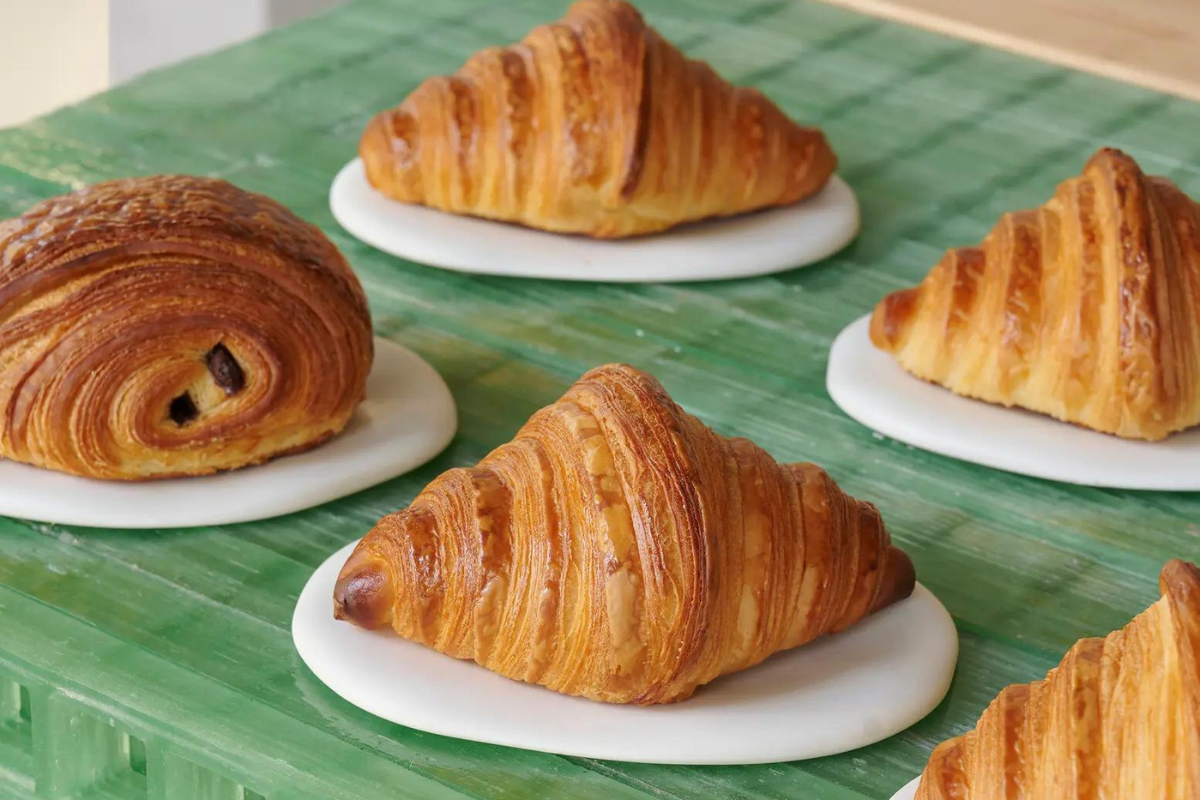Late last December, Milan entered an unofficial state of mourning when the beloved Brera-neighbourhood restaurant La Latteria — known for its spicy lemon pasta and strict no-reservations policy — closed after 58 years of service. But despite this loss, the city’s food scene has never been more vibrant. The last six months have seen a wave of new bars, restaurants and cafes — many of them run by young people from the fashion and design worlds — open their doors. With them, a fresh energy has been injected into a city better known for old-school haunts like the cocktail institution Bar Basso and the four-decade-old cafe Fioraio Bianchi. Here, seven new arrivals, from a revived family-run trattoria to a Lebanese-inspired dessert shop.
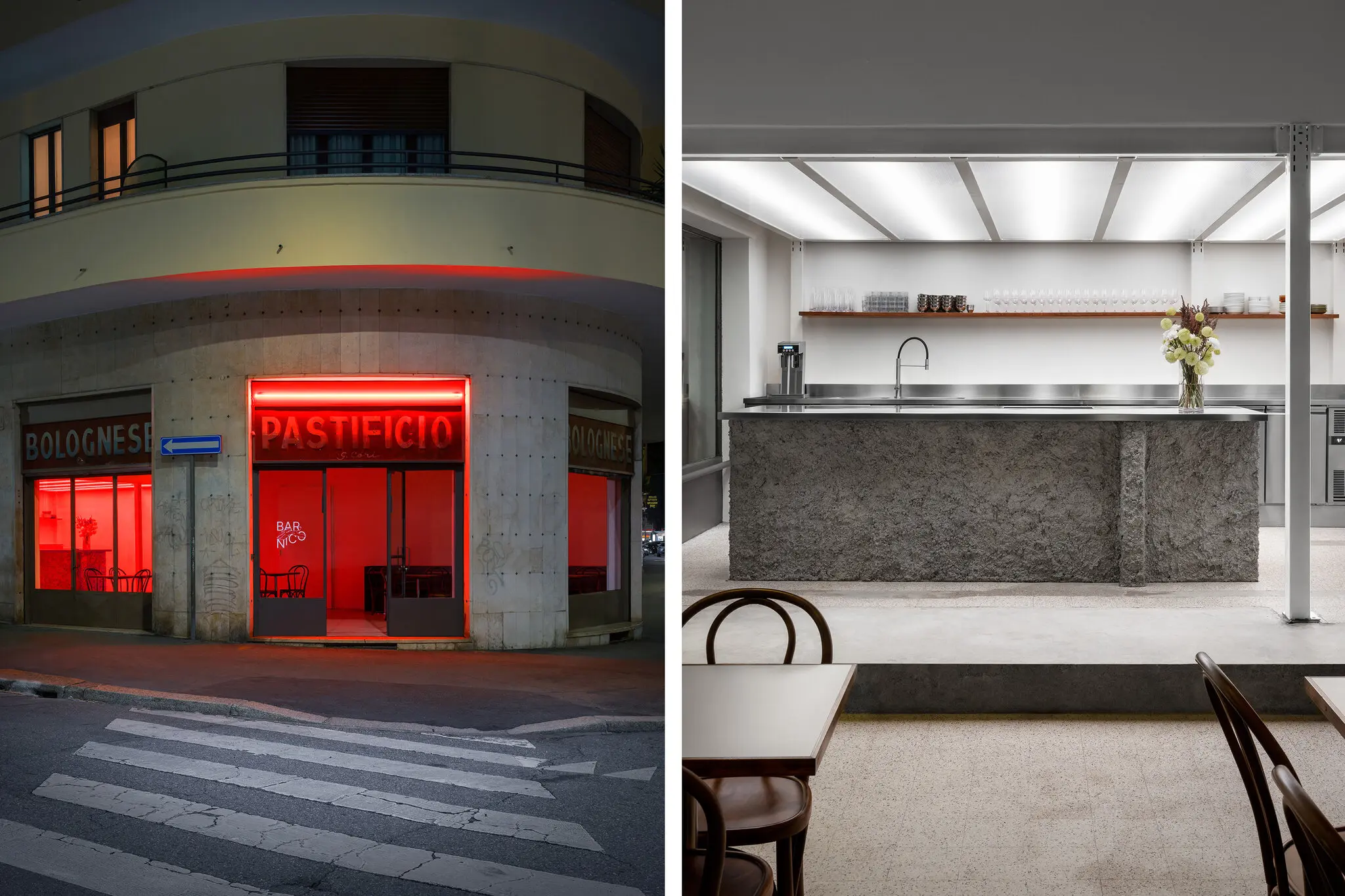
The hand-painted signage outside Bar Nico, in the quiet Acquabella district, remains unchanged from its days as a Bolognese pastificio (a pasta maker specialising in recipes from Bologna), but inside, the place has been transformed into a modern bar, where a steel and concrete counter anchors a sparse room furnished with wooden bistro-style tables. Founders Chiara Pino, a model, and Riccardo Ganelli, who previously worked for the fashion brand Sunnei, were inspired by the lively neighborhood wine bars they found on their travels to Paris and Barcelona. They’ve curated a menu of natural wines mostly from small producers in France and Italy: Temps des Cerises from the Languedoc-Roussillon; Contrada Contro, made near Monti Sibillini in the Marche; De L’avant, from Les Varrons in France. Also on offer are a selection of nonalcoholic kombuchas and simple small plates like a radicchio and balsamic salad, canned mussels in escabeche sauce and raw sausage from Bra, a town in Italy’s Piedmont region, served with spicy mustard and arranged in the shape of a smiley face.
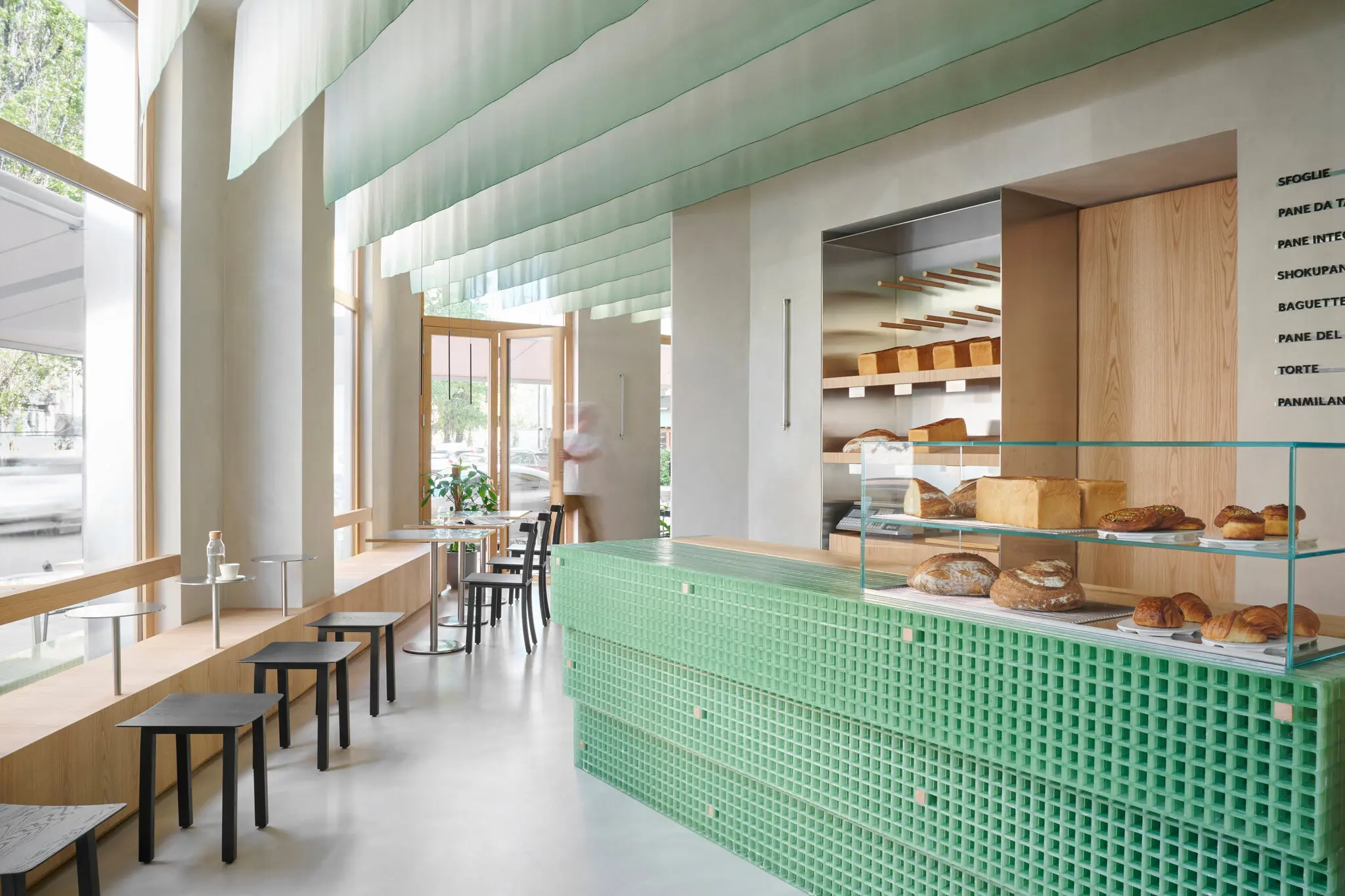
Yoji Tokuyoshi, the former sous chef at the revered Osteria Francescana in Modena, about 100 miles south, opened Pan with the restaurateur Alice Yamada last April after the shokupan (Japanese milk bread) at Bentoteca, his Japanese fine dining restaurant in the Ticinese neighborhood, began to garner attention. Pan serves pastries and desserts made with a mix of European and Japanese techniques and flavours, like flaky miso cinnamon rolls, Basque-style matcha cheesecake and anpan, sweet rolls filled with red bean paste. There’s also lunch — and, on the weekends, brunch — with an ever-changing menu that has included dishes like avocado toast with poached eggs and spicy shichimi powder on shokupan; pappa al pomodoro, the traditional Tuscan tomato and bread stew; and omurice, a Japanese dish that combines an omelet with fried rice. The mint green interiors, designed by the local architecture firm Studio Wok, include a bar made of gridded fiberglass panels and rows of pale green textiles along the ceiling inspired by noren, the fabric room dividers commonly used in Japan.
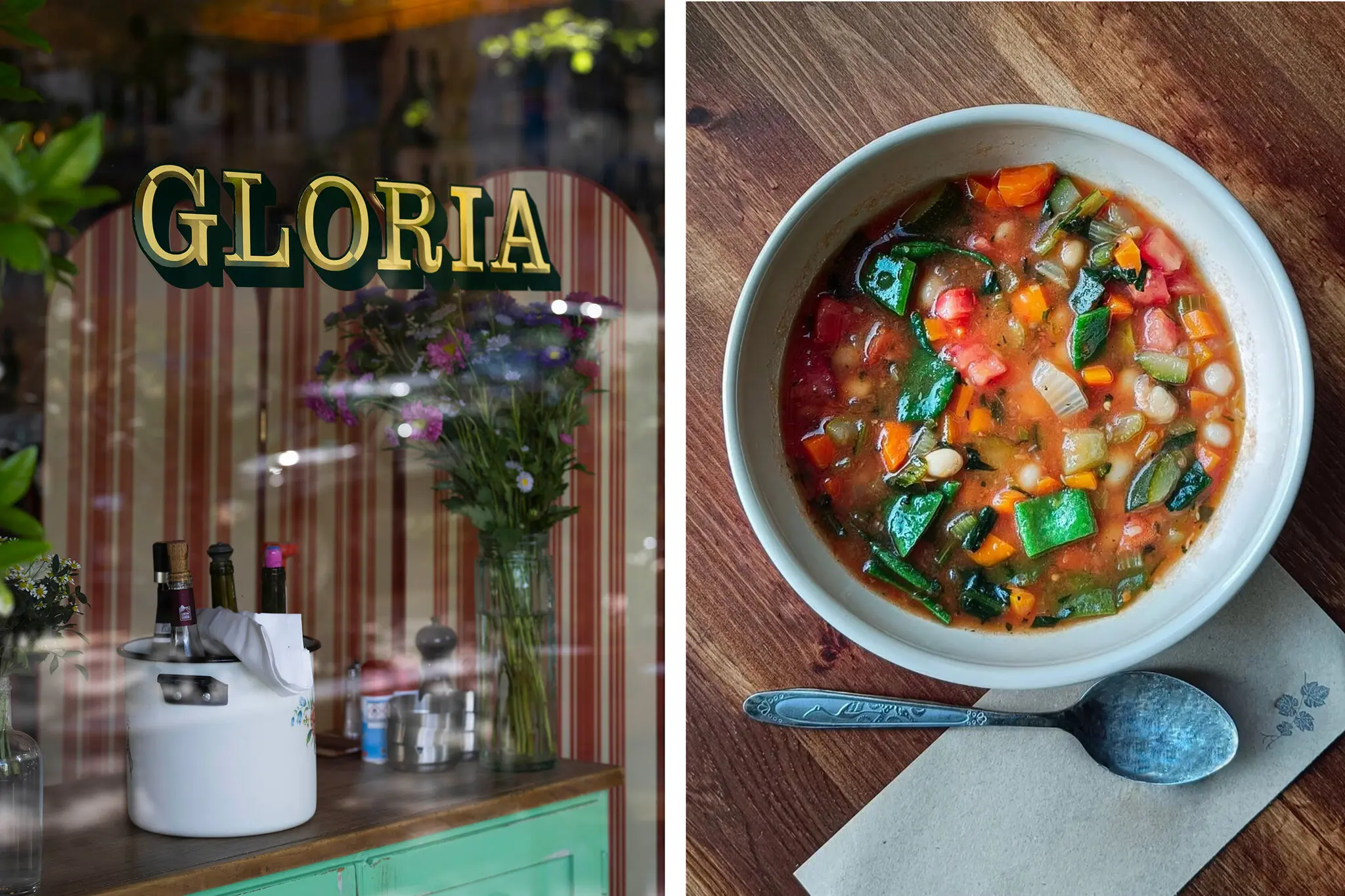
Located on Via Mario Pichi — a quiet side street in the Navigli district, a popular nightlife hub — the restaurant Gloria was opened in September by Rocco Galasso and Luca Gennati, the longtime managers of the natural wine bar enoteca/naturale in the nearby Ticinese neighbourhood, and Tommaso Melilli, a chef and food writer. They took over a sixteen-year-old family-run trattoria and left things — including the name, which belongs to the former owner — largely as they were, save for a few decorative additions, such as a zinc-clad counter and floral William Morris wallpaper. The dining room feels like a standard trattoria, but in the kitchen, Melilli modernises traditional Italian recipes using seasonal ingredients and unconventional flavours. Past dishes have included pumpkin risotto infused with bitter almond, pork-stuffed cabbage rolls with pomegranate, and pasta with chickpeas and smoked chestnuts.
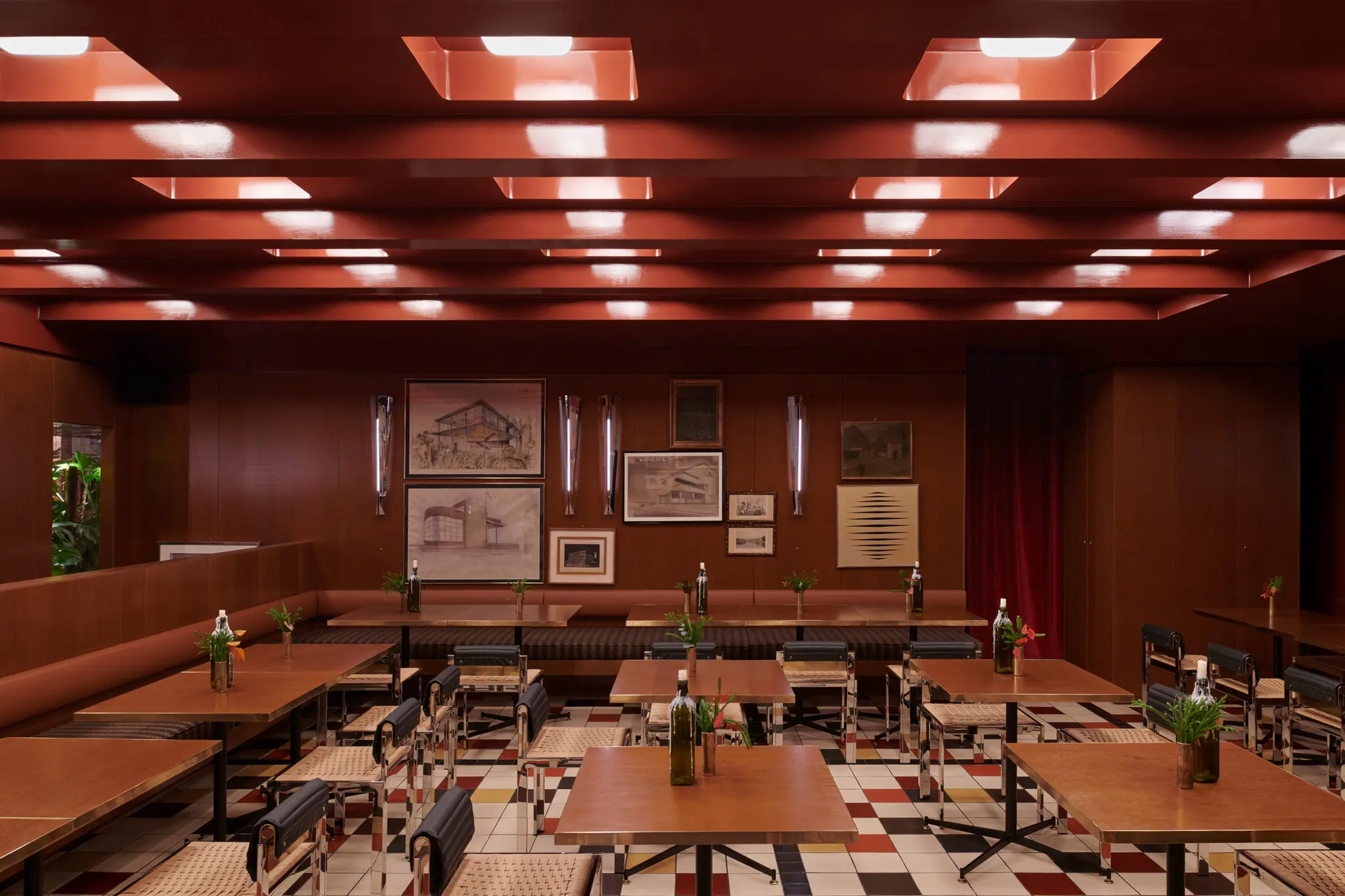
This intimate bistro opened on Via Fiori Chiari — a narrow cobblestone alleyway in the fashionable Brera neighbourhood filled with bars and restaurants — in December. The menu is packed with homey Milanese favourites: cassoeula, a slow-cooked pork and cabbage stew; bruscitti, beef ragu simmered in red wine and served over soft polenta; and mondeghili nella verza, a northern Italian take on cabbage rolls. But the real draw is the atmosphere. The retro-futuristic interiors were designed by the renowned local firm Dimorestudio and were inspired by the traditional Brera trattorias of the 1960s, when the neighbourhood was a bohemian artists’ hub. Guests sit on Dimorestudio’s minimal steel and woven straw Rei chairs amid walnut paneling and colourful floor tiles.
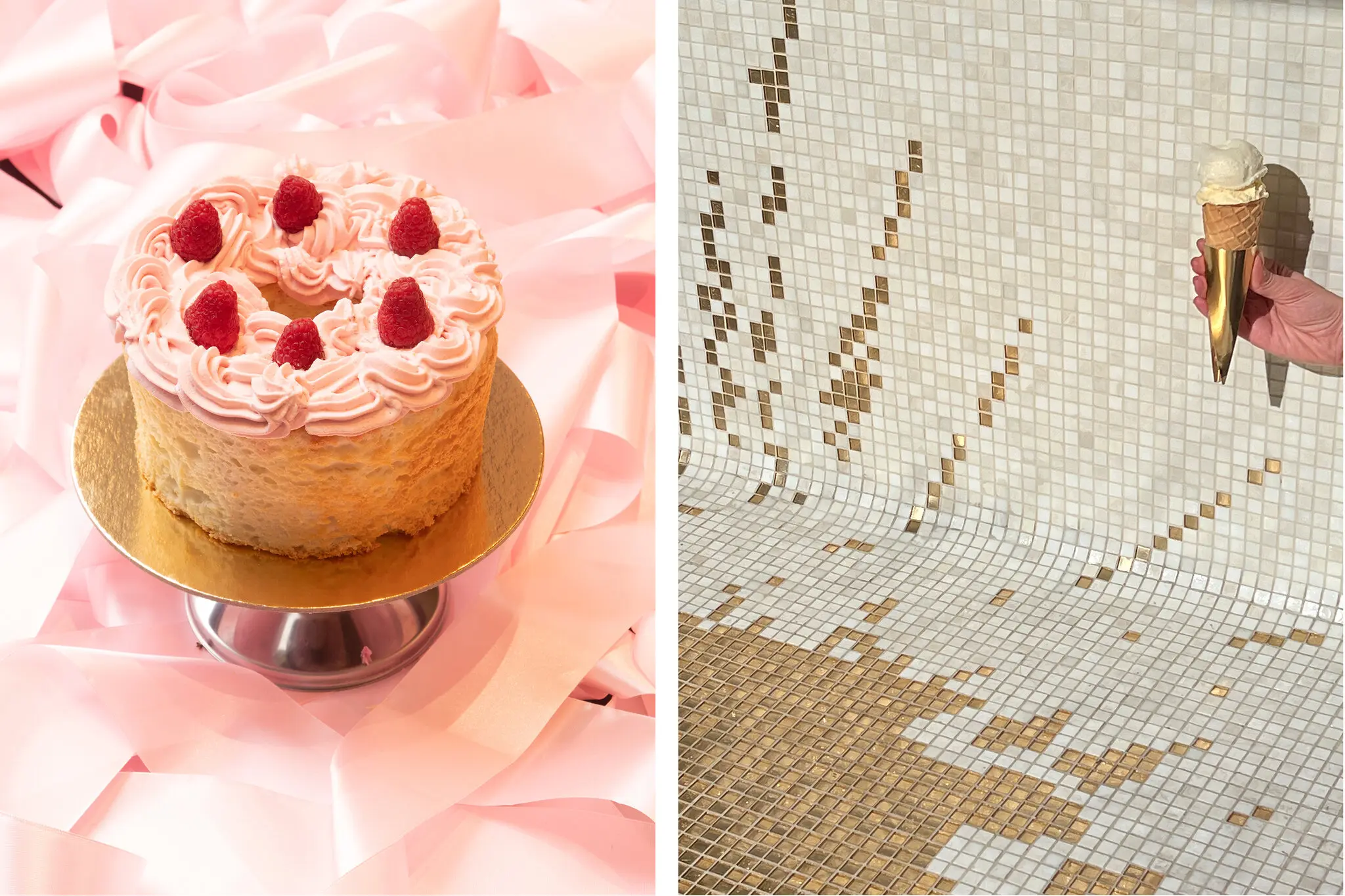
Sisters Yasmine and Julie Audi opened this dessert and ice cream shop in February, following in the footsteps of their mother, Nayla Audi, who established the original Beirut branch in 1997. The family also previously lived in Los Angeles, where they ran the popular Fairfax District bakery Milk, which closed in 2021. In Milan, the small storefront is on a quiet lane not far from the San Babila metro station. Inside, shimmering gold mosaic tiles depict a sunburst that runs from the floor to the glass dessert cabinet, where fluffy angel food cake piled high with pink, rose-flavoured icing is stored. (The cake can be topped with sesame-flavoured cotton candy or matcha whipped cream.) The shop also stocks ice cream and sorbet in flavours like orchid, jasmine or coffee toffee crunch, as well as handmade Loukoum candies — otherwise known as Turkish delight — available in rose or miske, a pine-like flavour derived from the mastic tree.
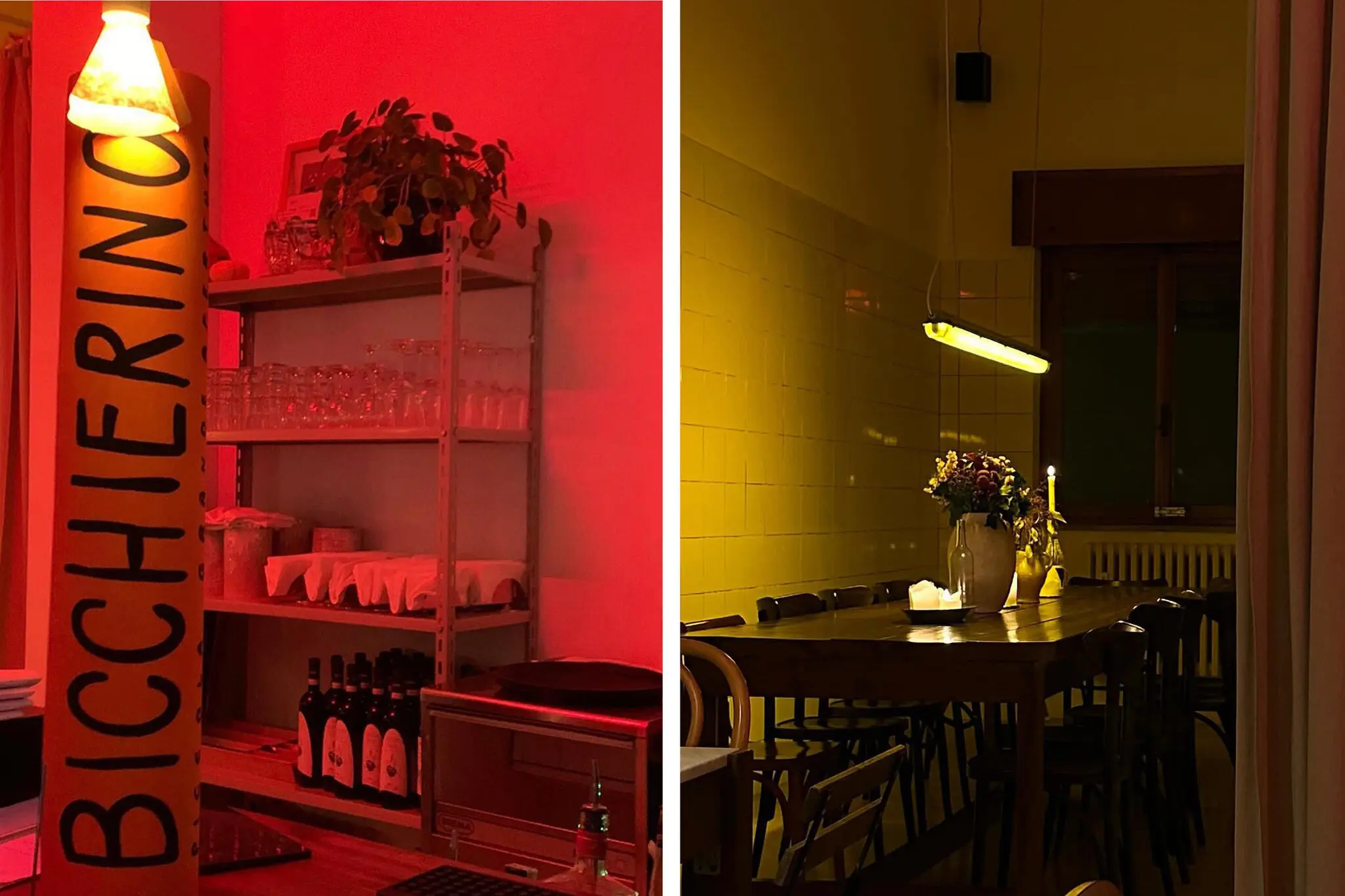
Set on a busy commercial street in the southwest neighborhood of Giambellino, Bicchierino has a similar origin story to Bar Nico: The relaxed local wine bar was founded by a group of five friends who also work in other creative industries, including photo production, and wanted to create an intimate space for their community to gather. The mismatched furniture, industrial shelving, and long wooden counter scattered with bottles more closely resemble the kitchen of a loft style apartment in Berlin than a typical Milanese bar. In addition to a rotating menu of small-batch natural wines, there are unfussy dishes, often made from ingredients found in the nearby Lorenteggio Market, like potato salad and artichokes served with pecorino and Parmesan cream. Occasionally, on the weekends, guest chefs take over the kitchen. The Argentine chef Facundo Castellani, who’s worked at the three-Michelin star Restaurant Mirazur in Menton, France, recently served a set meal of onion and smoked cheese empanadas; spicy aguachile with whitefish, apple and kiwi; and tacos al pastor.
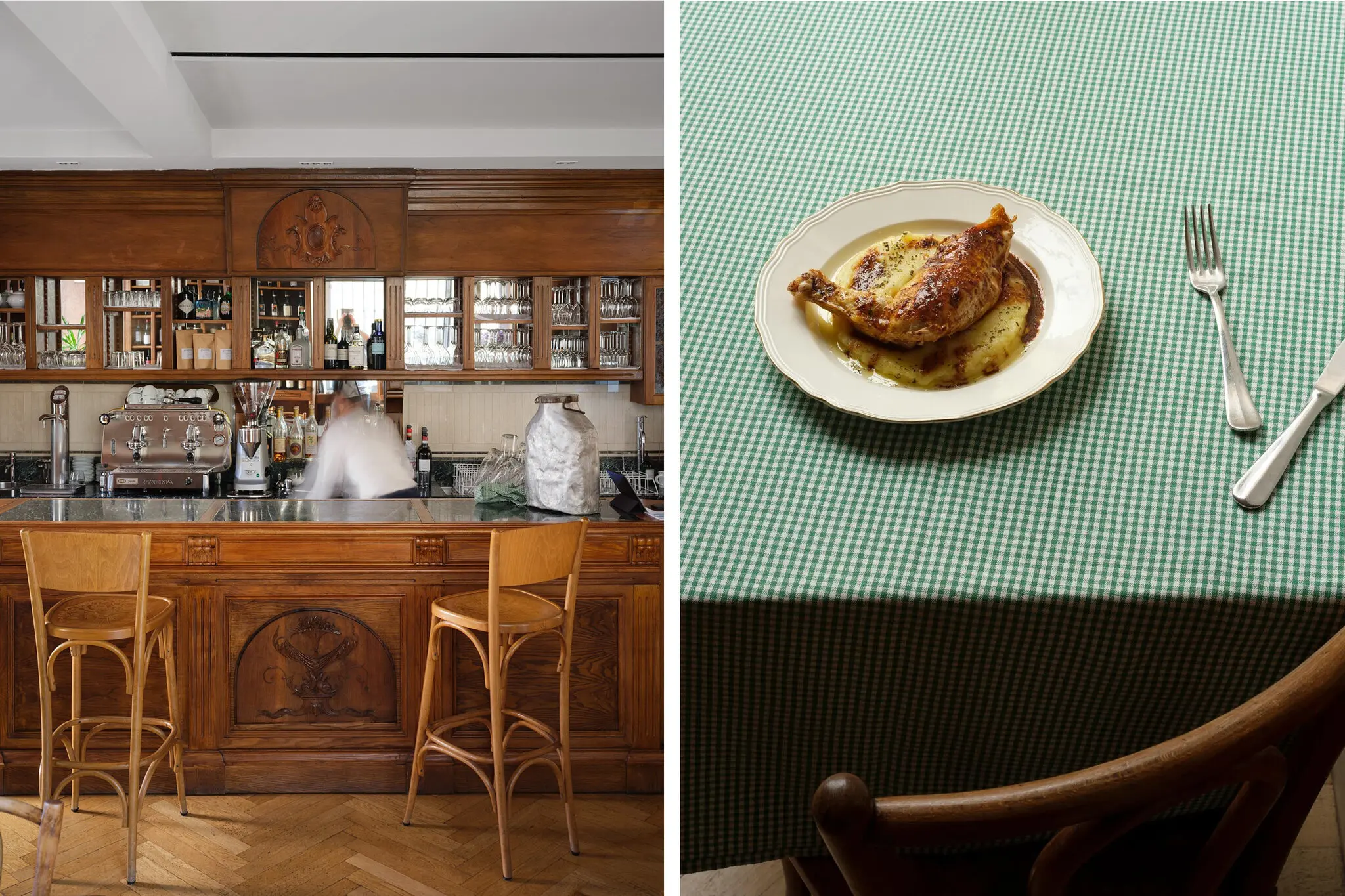
Via Stampa is the first Milanese restaurant from the 28-year-old winemaker Marco Guzzetti, whose organic farm and winery, Podere del Maro, opened in Liguria in 2018. The 50-seat space overlooks the Roman-era Basilica San Lorenzo Maggiore in Cinque Vie, the city’s historic centre, yet it feels more like a Parisian bistro than an Italian trattoria. The dining room features a carved wooden bar at the entrance, which opens up to an enfilade of sunlit rooms with white walls and pale parquet floors. The menu — just as pared back and elegant as the décor — focuses on small, seasonal plates that in the spring include fried artichokes with Parmesan fondue and mint, and ravioli stuffed with borage, an earthy tasting wild herb.
